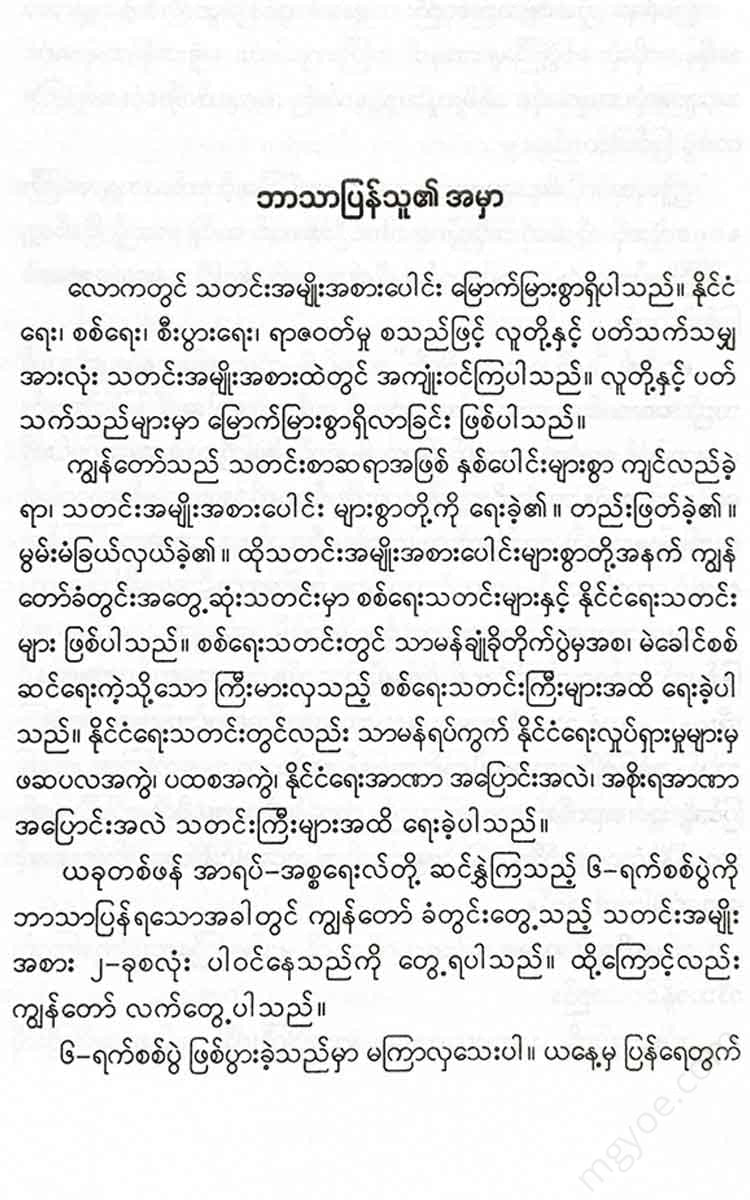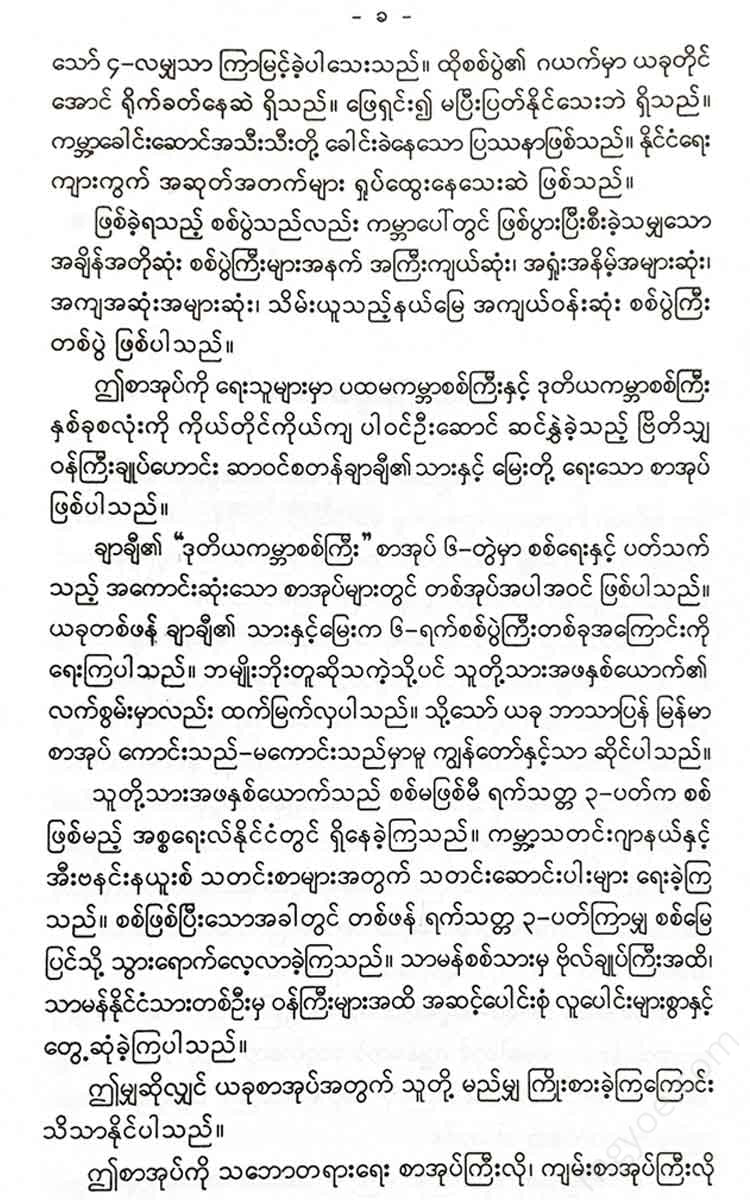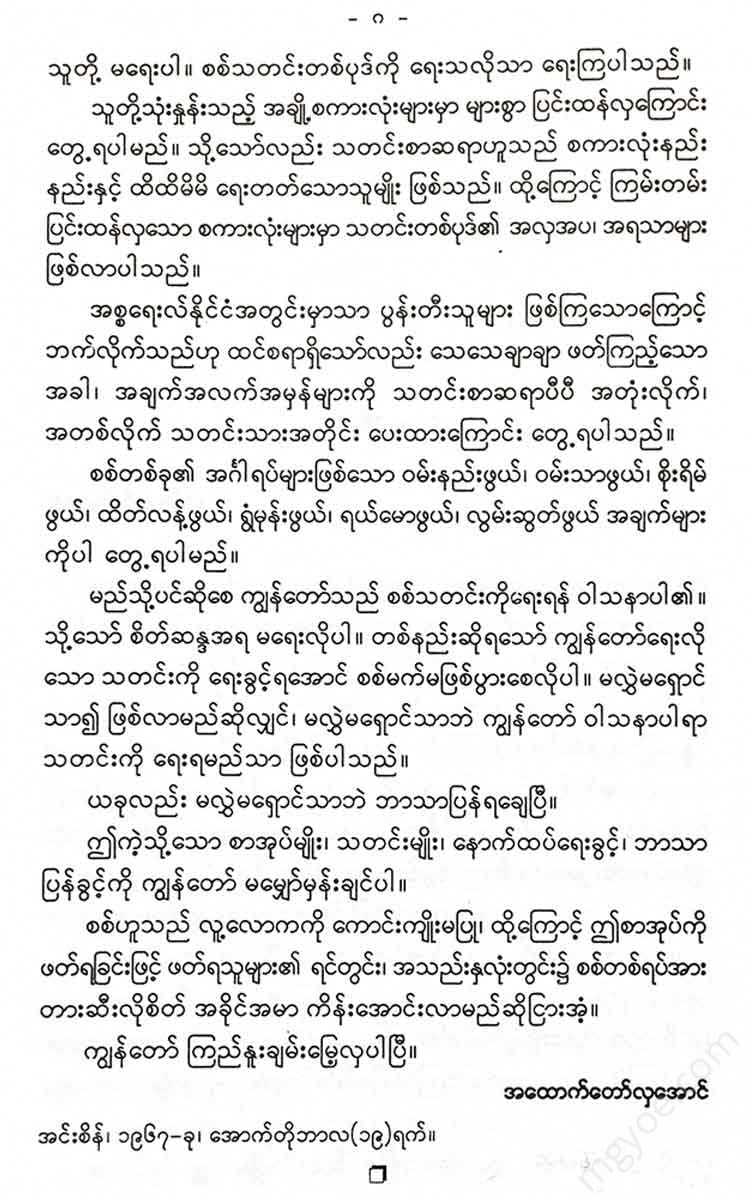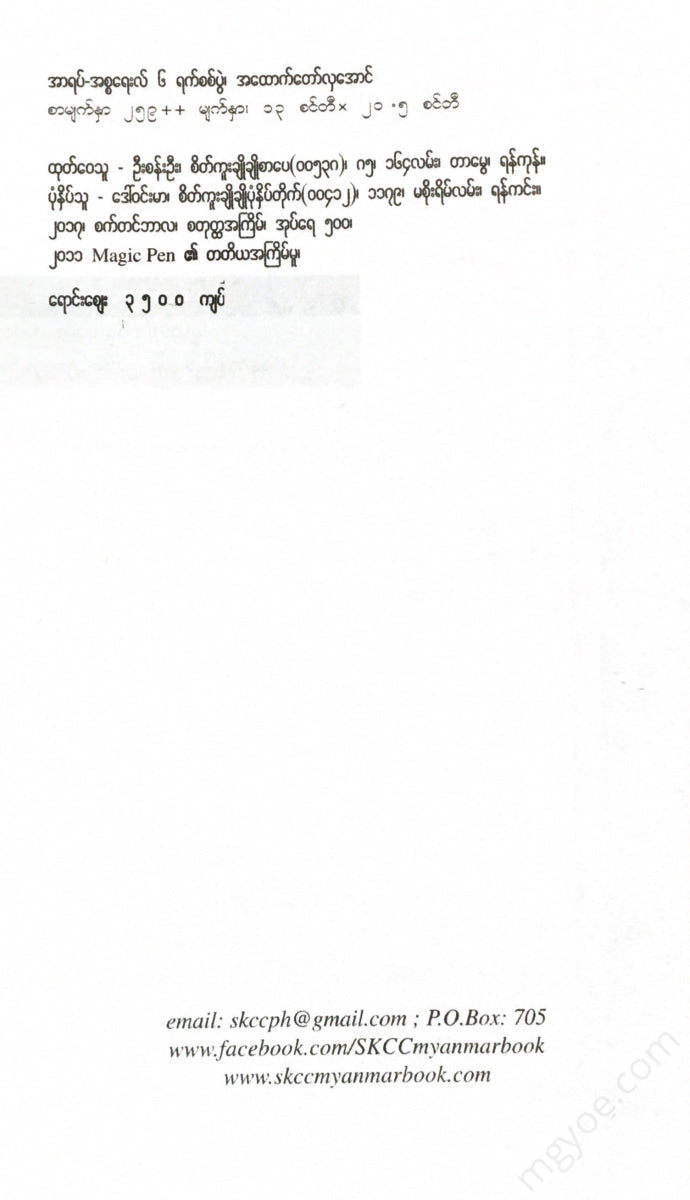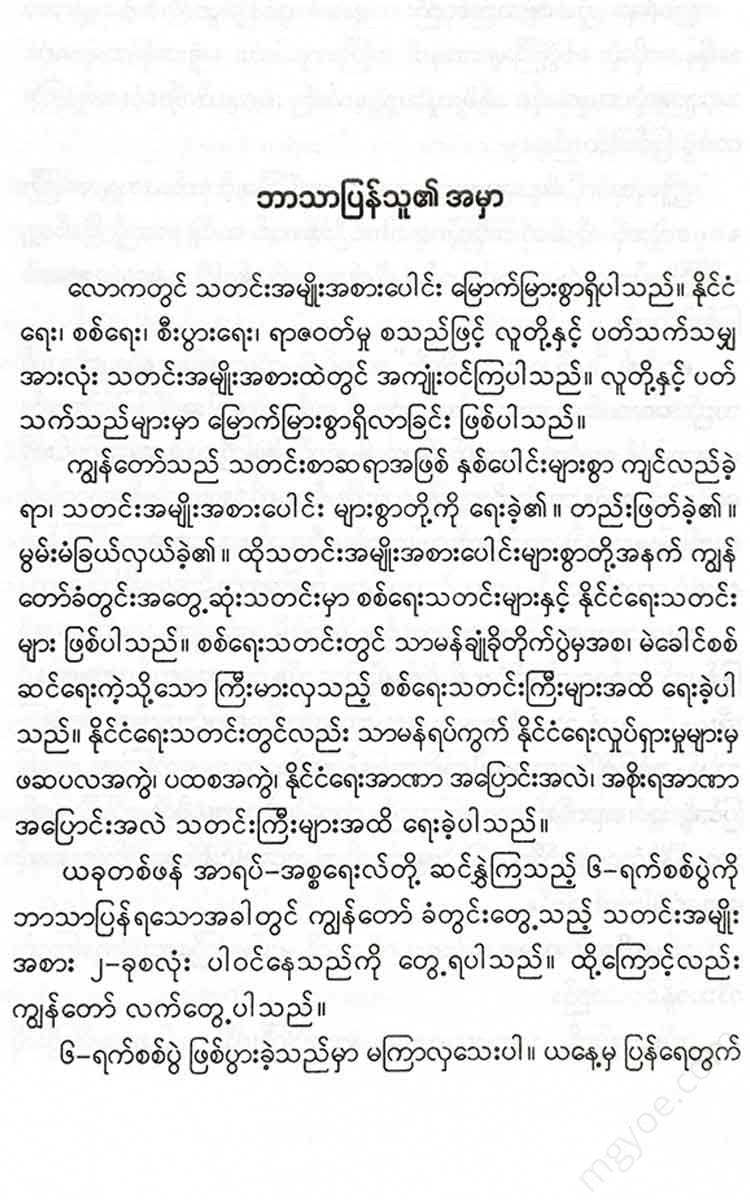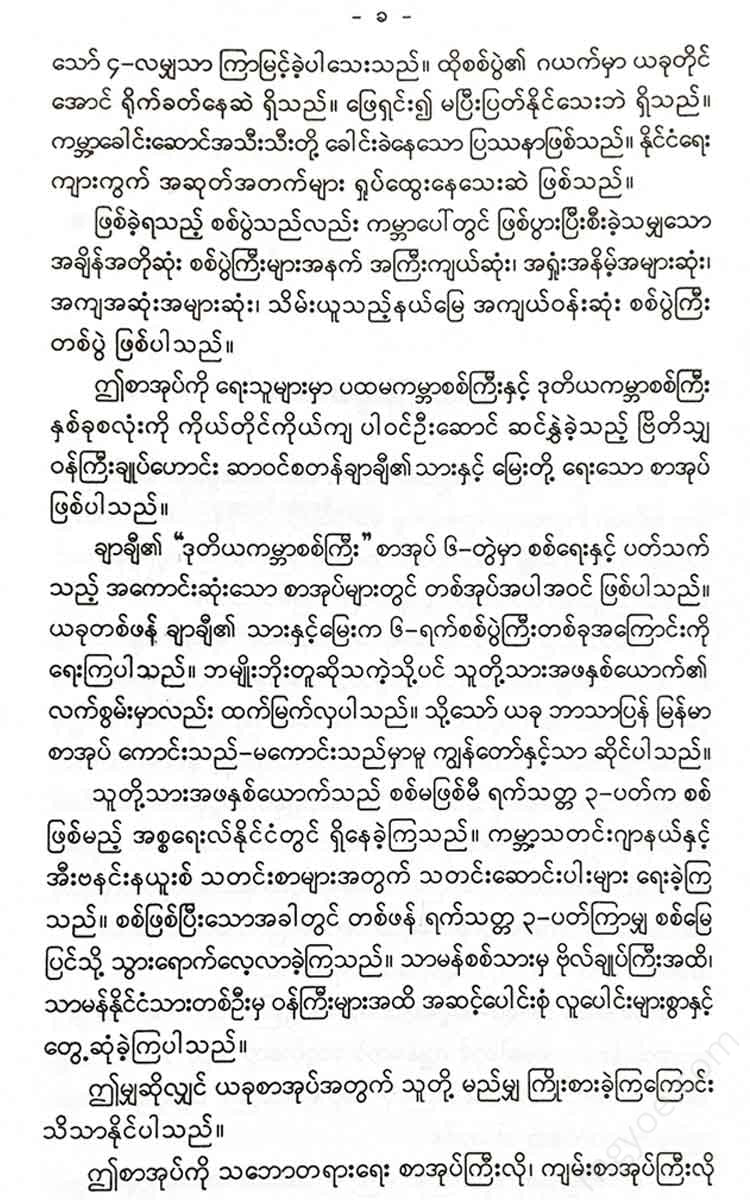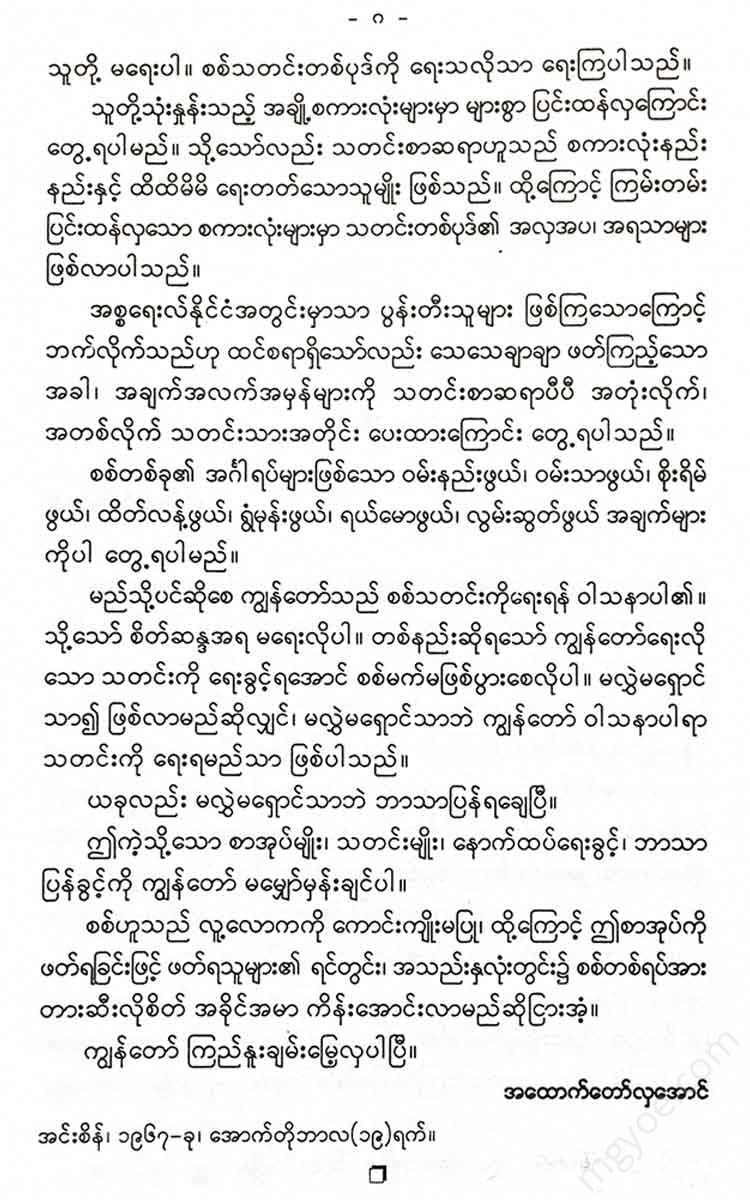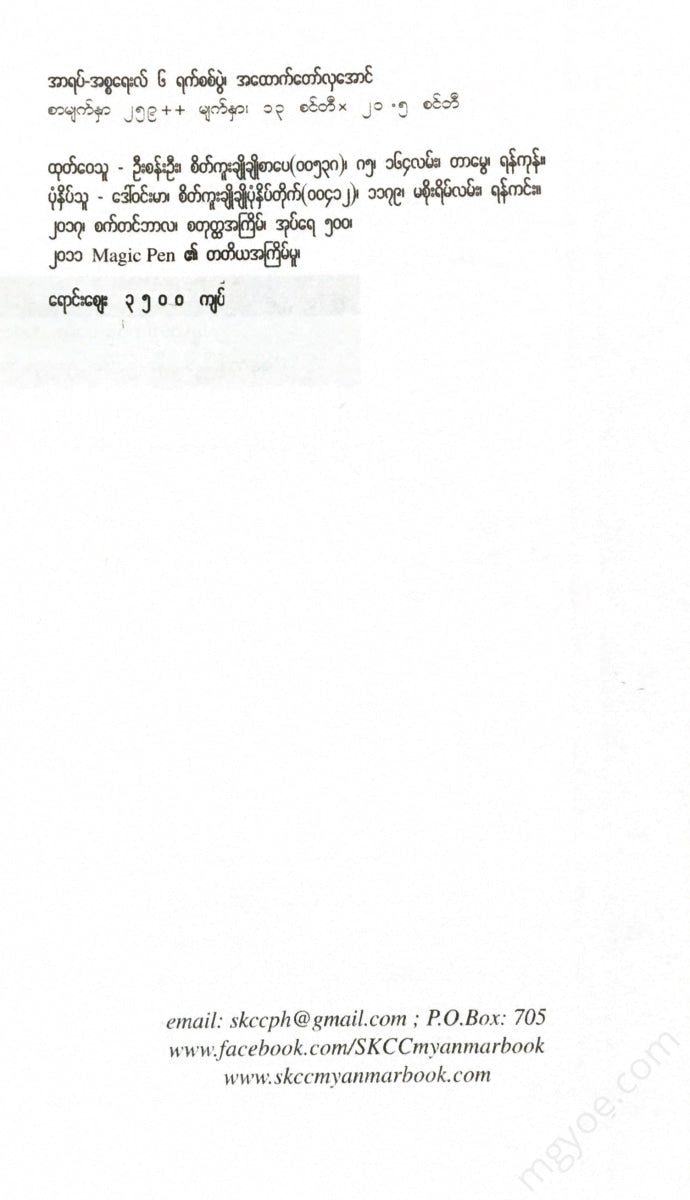စိတ်ကူးချိုချိုစာပေ
Athitaw Hla Aung - Arab-Israeli Six-Day War
Athitaw Hla Aung - Arab-Israeli Six-Day War
Couldn't load pickup availability
Chapter - 1
Background
Both believe that the Arabs and Jews descended from Abraham's sons, Ishmael and Isaac. This is a traditional belief. Ishmael's mother was an Egyptian slave. As a result, he was expelled from his father's land and spent the rest of his life in the wilderness. The descendants of Ishmael are considered Bedouins. Today, the Arabs are Bedouins.
The descendants of Ishmael's brother Isaac are the 12 Jewish tribes. Of these, two tribes are lost forever. Many believe that the English are one of the two lost tribes. Some claim that
The Arabs and the Jews became rivals. They became bitter enemies. In fact, even the two brothers who gave birth to them, Ishmael and Isaac, were rivals. Their languages were similar. The Arabs and the Jews, who had been enemies since their ancestors, are still arguing over the land of Palestine, fighting over it, and waging war.
About 3,500 years ago.
The Jewish people, who had been held captive in Egypt, were led by the prophet Moses to Canaan. They crossed the Sinai Desert and made a long journey. It is believed that the descendants of Abraham, who had migrated from Mesopotamia, had already established themselves in Canaan. By the will of the warlike God, the Jewish people defeated the various peoples who had settled in Canaan.
Thus, while they were based in Canaan, they went through a cycle of being captured by the Babylonians, being attacked by King Alexander, and becoming part of the Roman Empire.
However, the Jewish people, enduring all kinds of dangers and calamities, lived until the advent of Christ in 70 AD. In that year, Titus attacked and destroyed the city of Jerusalem, which the Jews had founded. However, the Jews did not disappear from the territory of Palestine forever. They remained, more or less, forever. They continued to strive for the establishment of a state in Palestine, as God had willed. In 1920, General Allenby's victories brought the Jewish territory under the protection of the British government.
As the Jews crossed the Sinai Desert and returned from Egypt to Canaan, they listened to the teachings of Moses. Moses taught the Jews spiritual and moral values and virtues. The laws, religious practices, and traditions that Israel uses today are largely based on these teachings.
When the Jews arrived in the Jordan Valley, they recorded how they settled in the “Promised Land,” how they conquered and conquered the entire Egyptian territory, and how they held on while resisting attacks from surrounding tribes.
Enemies surrounded them. They struggled to build a large agricultural structure amidst these enemies. In their efforts, they failed to become a "living structure flowing with milk and honey," but instead were plagued by civil war and disaster.
The Jews lived in Palestine as a group of 12 tribes. They lived there for thousands of years. They were invaded by the Babylonian army and taken captive. However, the first captivity lasted only 50 years, and 40,000 Jews returned to Jerusalem in 538 BC.
They rebuilt the ruined city of Jerusalem. They rebuilt the Temple Mount. And they established the second Jewish national state.
They lived and ruled as a commonwealth for about 500 years. In 63 BC, the Roman armies invaded Palestine. Thus, they became part of the Roman Empire. Under the rule of the Roman Empire, they were united and interdependent, religiously and socially. However, their political orientation was not stable.
After Christ, in the year 70 AD, they rebelled against Roman rule. But... they failed. Roman troops attacked Jerusalem and burned down the Temple.
The great hero of the Jewish people, Masada, was also captured three years later. Masada, who sacrificed his life for his people and country, became a great figure in the history of the Jewish revolution. A great history was written about him.
The Roman generals thought that by capturing the revolutionaries and then taking them to Rome, it would be like breeding vipers. So they started killing each other.
A Jewish man had to kill his wife and children himself. When the women and children were gone, he chose ten of the remaining men. These ten killed all the others. When they were gone, he chose one of the ten. This one killed the remaining nine. Finally, the one who was left threw himself on his sword and made the Jews suffer.
While the Romans were carrying out this inhuman massacre, two old women and five children, who had been hiding in a cave, escaped. Sixty years later, a revolt led by the leader of the Baalbeks took place. In the end, the city of Jerusalem was completely destroyed, leaving only a few stones and rubble.
For two years, no Jew was allowed to set foot in the new city of Jerusalem that the Romans rebuilt. All Jewish beliefs and customs were completely destroyed. However, the Jewish people did not disappear from the territory of Palestine, but continued to live and take root in various ways. The hope of establishing a Jewish monarchy was almost gone.
While Palestine was under Roman rule, the Jews spread into Asia Minor and established settlements. They settled in southern Spain, the Rhone Valley, Italy, and Greece. There were also Jewish settlements along the coast of Persia and the Red Sea. Later, European civilization spread northward. As this European civilization spread, the Jews followed them to the northern regions. They settled in Russia, Germany, and England.
No matter what country or region the Jews have settled in, they have not lost their religious and cultural traditions. They have continued to maintain them. That is why Christianity has become the religion practiced by most Western countries.
In Europe and Asia, Jews are a distinct group. They are distinct in religion, social traditions, and culture. They live in this way, and they behave accordingly.
They protect the cultural traditions of other peoples from being assimilated. They only cherish their own culture and traditions. They only follow the teachings of Moe Zac.
The advancement of European civilization and its modernization can be attributed to the great contribution of the Jews. This is because they imitated their cultures. In other words, Jewish culture penetrated and absorbed the cultures of others.
Europe improved their laws, literature, religious and cultural customs, and social life. It can be said that the Europeans adopted the religion, culture, morality, and literature of the Jews.
At the same time, a new religion was emerging in the East. It was Islam. (The word Islam means submission to God.) Islam is a religion based on the teachings and teachings of the Prophet Muhammad. The Prophet Muhammad was born in Mecca in 570 A.D. Islam brought together and united the Arabs and their peoples living in the eastern regions around Mecca and the surrounding areas. It was a religion that brought together the Arabs and their peoples living in the eastern regions around Mecca and their peoples under a common cultural structure. It was because of Islam that the Arabs and the sub-ethnic groups living in the Arab countries generally shared a common culture and formed a united, strong, and powerful society.
In 632 AD, the Prophet Muhammad died at the command of the Caliph. Within 100 years of Muhammad's death, Islam had spread beyond Mecca. It also spread westward. Exactly 100 years after Muhammad's death, the Battle of Tuwa took place in 732. In that battle, Abd al-Munich was defeated by Charles Martel. Until that year, Islam continued to spread rapidly.
Jerusalem is a great city for Christians and Jews, and a holy city for Muslims. The Middle Ages were a time of great religious diversity. People were very religious in their own ways. Therefore, Jerusalem became a great city of worship and devotion for the three major religions.
For 200 years, there have been great religious wars. Christians have fought to capture Jerusalem. Arabs have fought to defend Jerusalem from Western invasions. Similarly, Jews have hoped that one day Jerusalem will inevitably return to their hands.
The period between 1000 and 1900 AD was a time of constant struggle for European Jews, with battles, explosions, struggles for survival, and struggles to unite their people and their cultural identity.
The British historian Naomie was Jewish. Once, when Darby asked Naomie why he, being a Jew, wrote a history of England and not of his own people, the historian Naomie replied as follows:
"Darby... there is no history of the Jewish people. There are only stories of heroes and martyrs among the Jewish people. So these stories are too much for me to write a history book."
If we look back at the lives of the Jews, we can see that they played important roles in many countries. In the arts, in literature, in science and medicine, the Jews played the most important roles. However, their contributions did not come to the fore and were often hidden in the shadows. Not only that, but Jews were also not recognized, disliked, and ostracized.
In the early 1870s, anti-Semitism was widespread in Germany. Accusations were made that the Jewish people were taking over the national life. In 1881, the Anti-Semitic League demanded a ban on the entry of Jews into Germany. Anti-Semitic Leagues were organized throughout the country. The League held a congress in Dresden in 1882. In 1894, French officer Alfred Dreyfus was accused of selling military secrets to Germany. Anti-Semitism erupted in France. Around 1890, anti-Semitism also emerged in Russia. Jews were banned from living in Moscow and Kiev and were deported.
Only Jewish women with a prostitution license were allowed to live in Moscow.
Thus, persecution of the Jews in various ways continued to be severe until the end of the 19th century.
These events and persecutions also gave rise to a new ideology and a new idea for the Jewish people.
In 1882, a Jewish physicist from Odessa published a book. In it, he explained that Jews were everywhere despised, ostracized, and that no country would accept them, making it difficult for them to become citizens of any country. He argued that the only way for Jews to overcome this difficulty was to establish a Jewish homeland in Palestine.
Only a small number of Jews from Russia went to Palestine, where they established small agricultural enterprises, lived in their own communities, and accepted Turkish rule.




